Have you ever opened your mailbox, only to find a bill that doesn't seem quite right? It's frustrating when you're charged for something you didn't purchase or receive. Whether it's an error in your account or a case of mistaken identity, addressing a false billing complaint can feel daunting. Join us as we explore how to effectively tackle this situation and draft a compelling letter to resolve your billing issues.
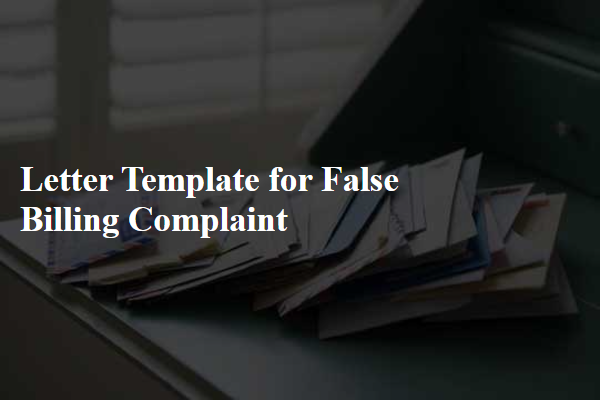
Accurate account information
Accurate account information is crucial for identifying discrepancies in billing statements. For instance, a utility company may issue a monthly bill of $150 for electricity services, while the correct amount based on usage (as per recorded data) should be $100. Tracking errors often originates from incorrect meter readings, which can underestimate or overestimate consumption. Customer accounts must reflect precise details like account numbers and usage history to facilitate swift resolution of billing issues. Customers should review statements regularly and report inconsistencies promptly to avoid penalties or service interruptions.
Specific billing details
A false billing complaint requires detailed information about the erroneous charges. The invoice number, such as #123456, needs to be highlighted to pinpoint the specific transaction. Billing period details, from January 1 to January 31, 2023, are essential to clarify the timeframe in dispute. The total amount charged, for example, $150.00, should be precisely noted, along with identifying the services billed, like internet services provided on a residential account. It is also critical to mention any relevant previous correspondences, specifically reference numbers or dates of previous communications, which may support the complaint process. Documentation, such as copies of the invoice and receipts verifying payment against the billed amount, should be included to provide clear evidence for the dispute.
Clear explanation of discrepancy
Discrepancies in billing statements often arise from clerical errors, miscalculations, or erroneous charge entries. For instance, a recent invoice dated September 15, 2023, from XYZ Utilities, shows an overcharge of $150 for electricity usage. The previous month, August 2023, the bill indicated a total of $120. Comparing the meter readings from both months, the reading was recorded as 250 kWh in August and 260 kWh in September, which should only lead to a $10 increase in charges. This indicates a potential error in the billing calculation, causing significant confusion. A detailed audit of the statement should reveal the correct charges, highlighting the need for prompt resolution to avoid future misunderstandings and potential disputes.
Desired resolution request
False billing complaints can arise when customers are charged incorrectly for services or products they have not received. For instance, a customer might receive an invoice from a major telecommunications company like AT&T for $150, even though they only signed up for a promotional plan costing $50 per month. This discrepancy can lead to frustration and a need for resolution. A desired resolution request should clearly state the expected correction, such as a refund of $100 for the excess charges, along with a request for a corrected bill that accurately reflects the agreed-upon charges. Additionally, customers may ask for assurances that their account will be reviewed to prevent future billing errors.
Contact information for follow-up
False billing incidents can provoke significant frustration among consumers. Duplicate charges from service providers, such as internet companies or utility services, can lead to confusion and financial strain. Incorrect billing amounts can arise from clerical errors or automated systems not updating records. Consumers may face difficulties resolving such discrepancies, especially when customer service representatives require several days or weeks to address billing concerns. Documenting every transaction detail is crucial for effective resolution. Providing contact information for follow-up, such as phone numbers, email addresses, or case numbers, is essential in expediting the investigation into the matter. Prompt communication with billing departments can prevent further issues and ensure timely corrections.
Letter Template For False Billing Complaint Samples
Letter template of false billing complaint regarding unauthorized charges
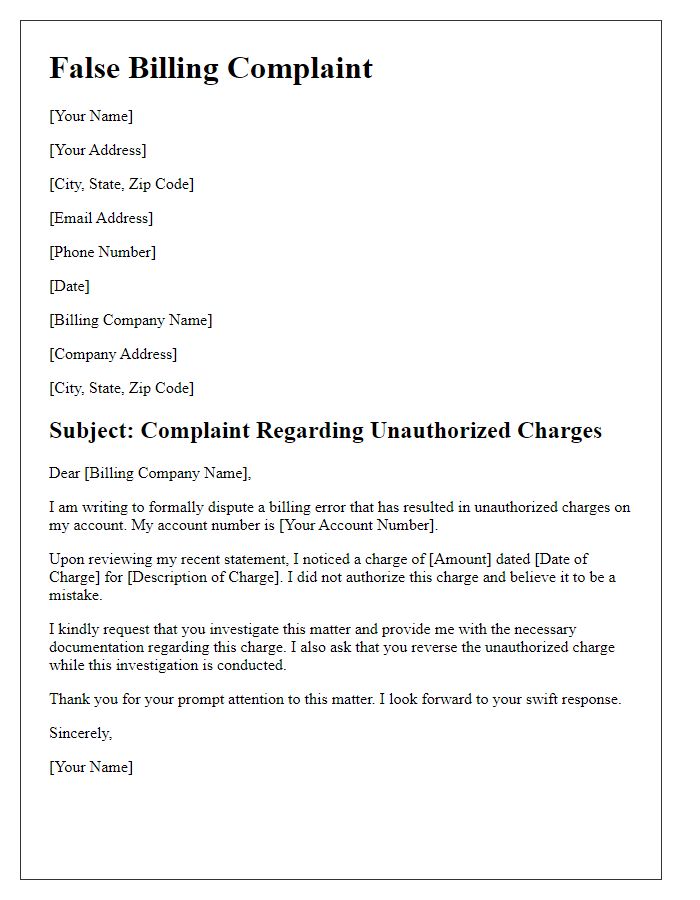
Letter template of false billing notification for incorrect billing statement
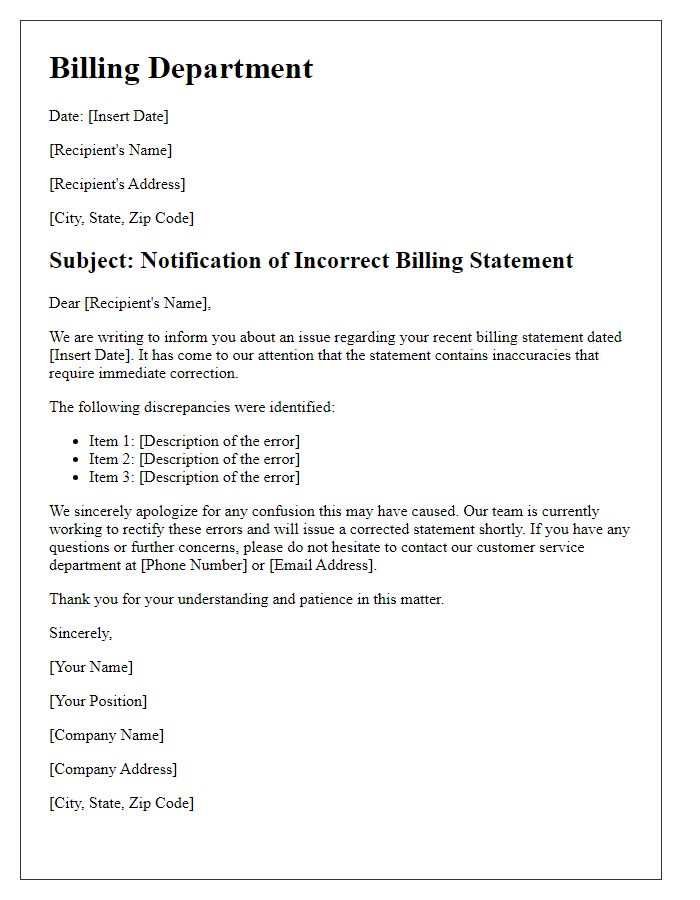
Letter template of false billing correspondence for unresolved discrepancies
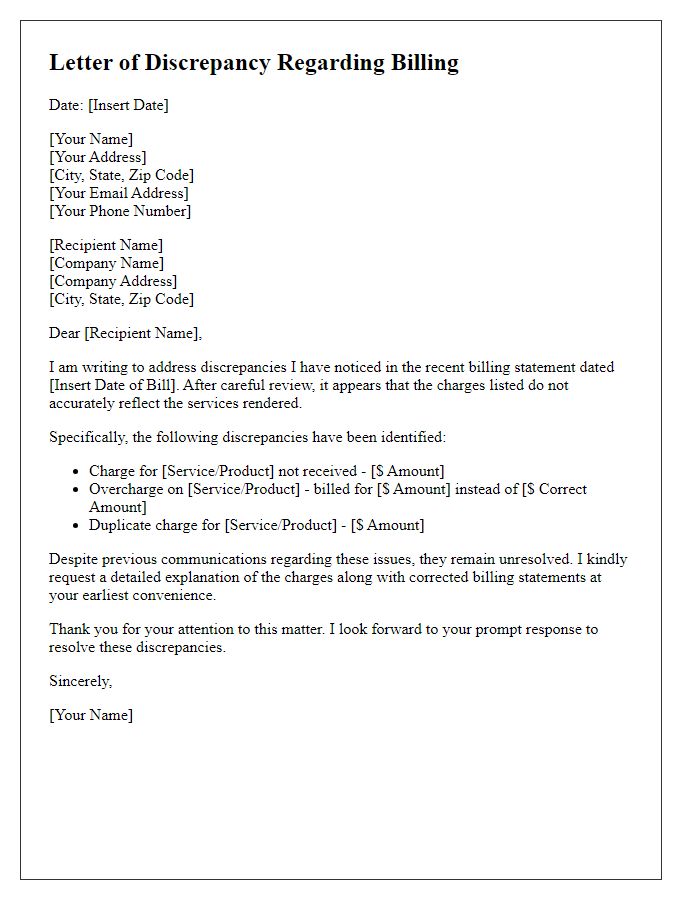

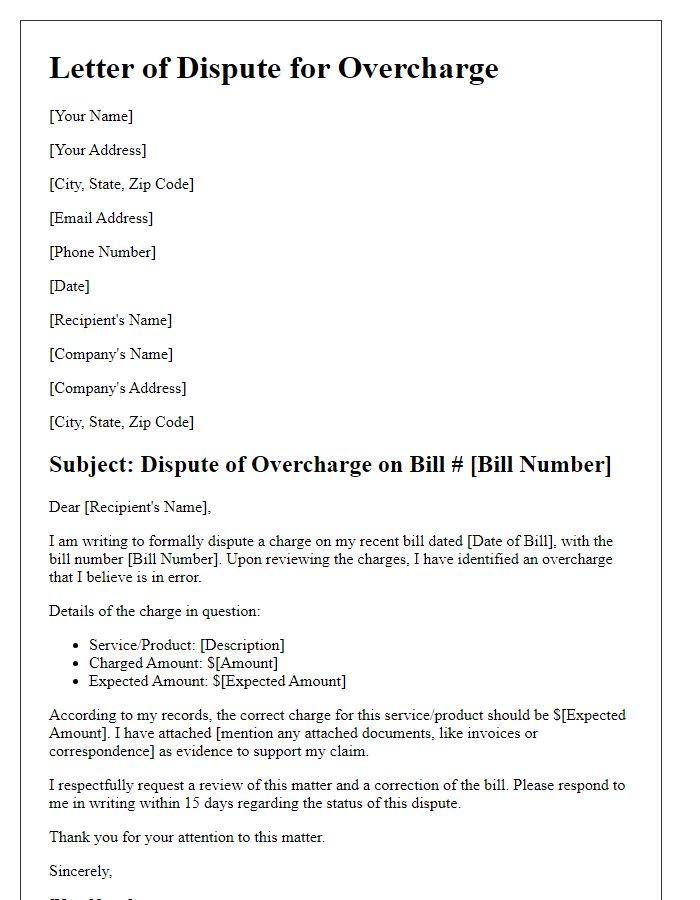
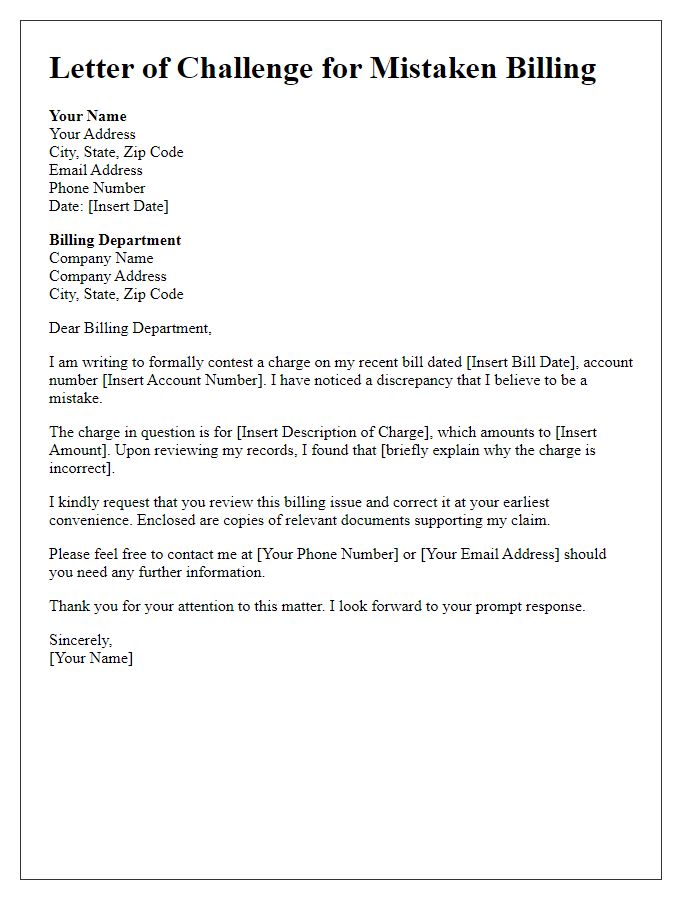
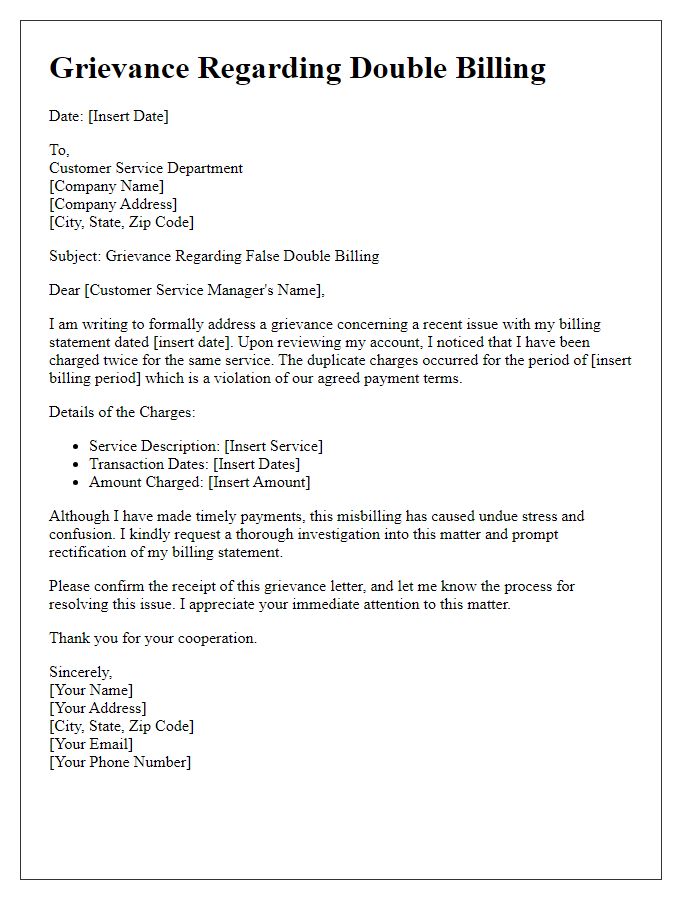
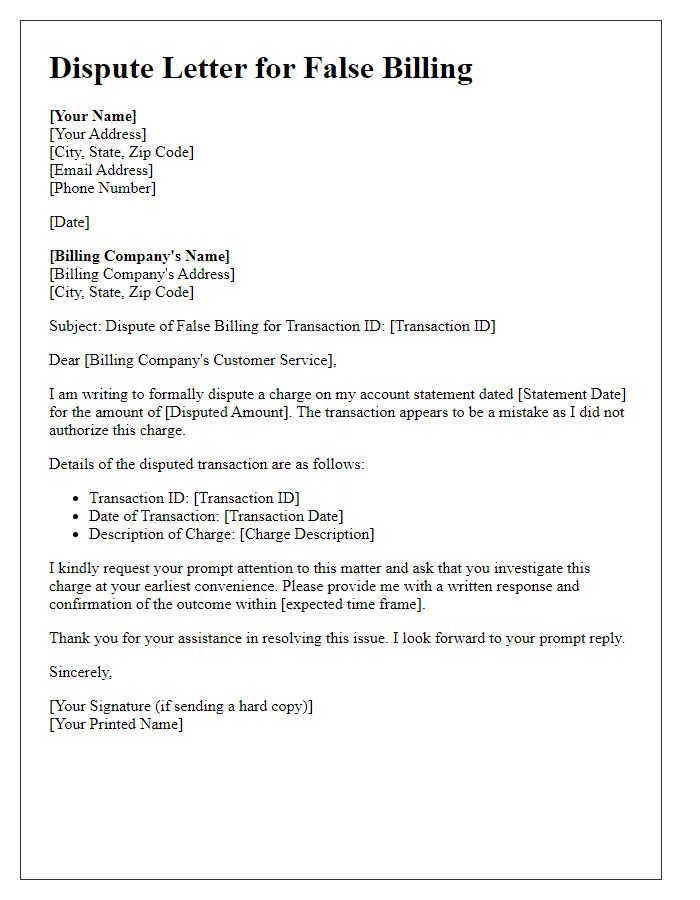
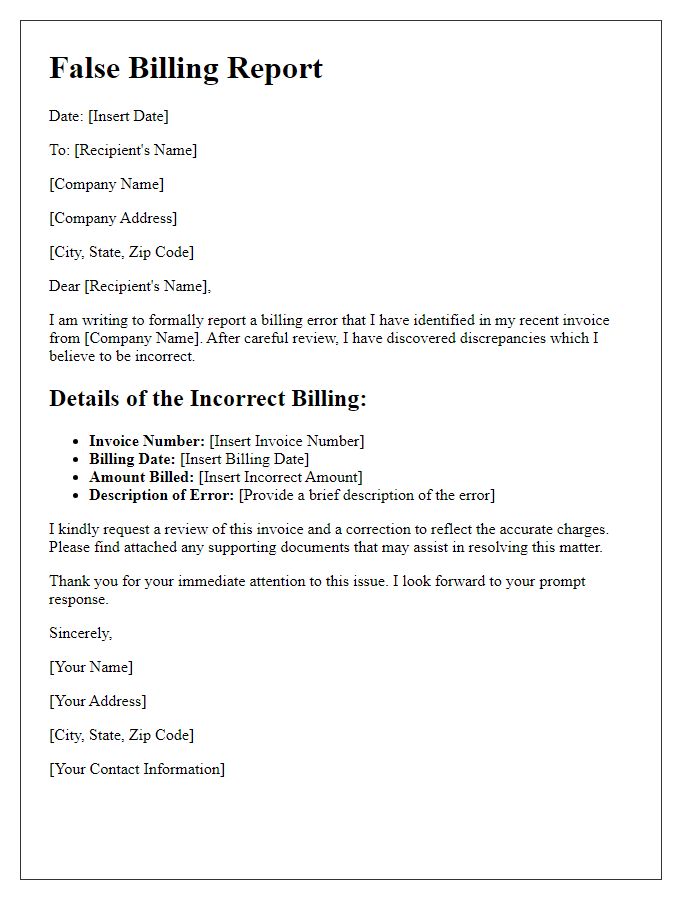
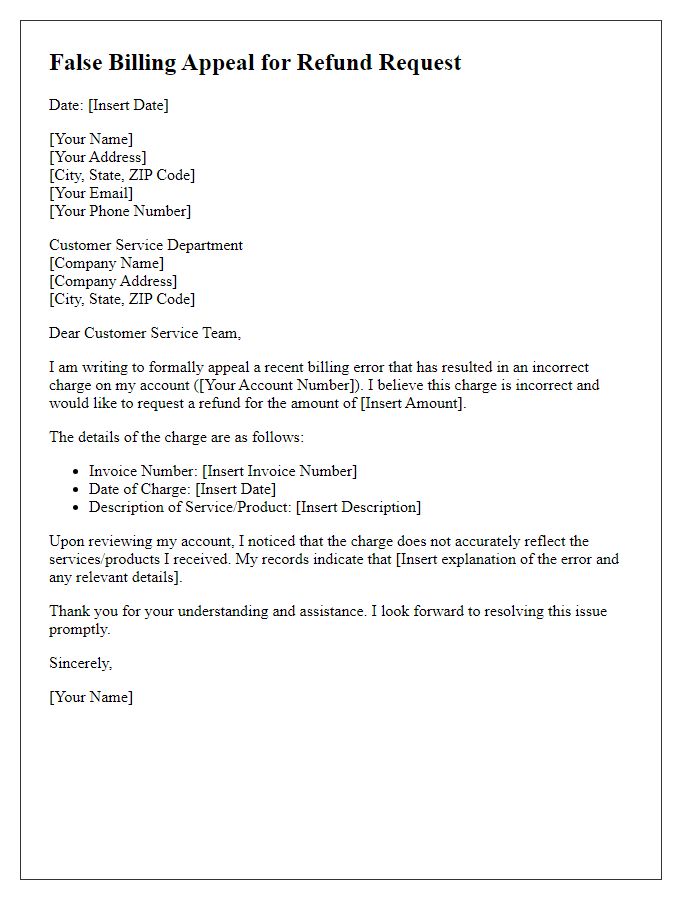
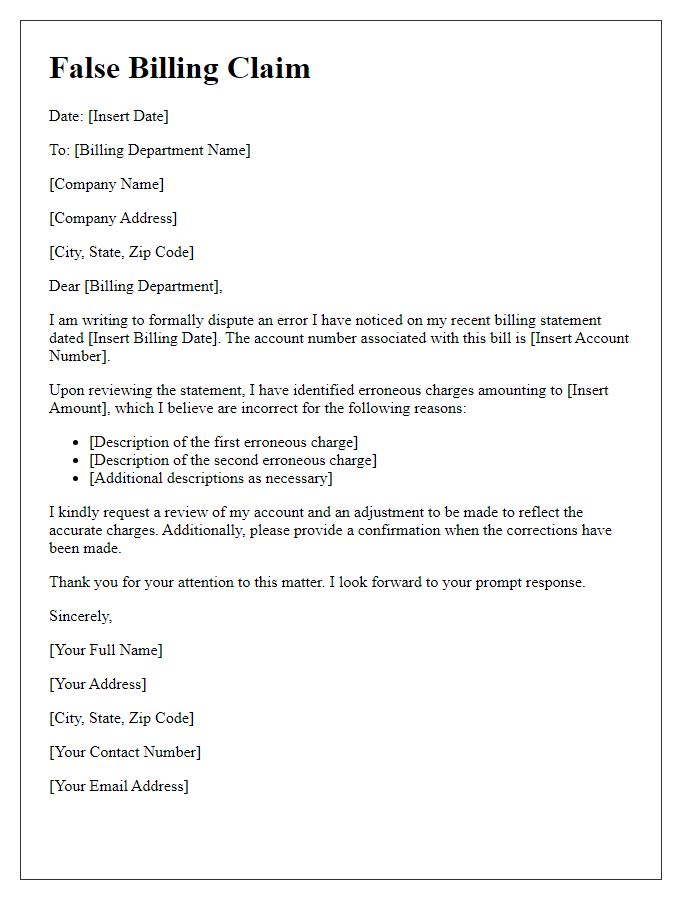

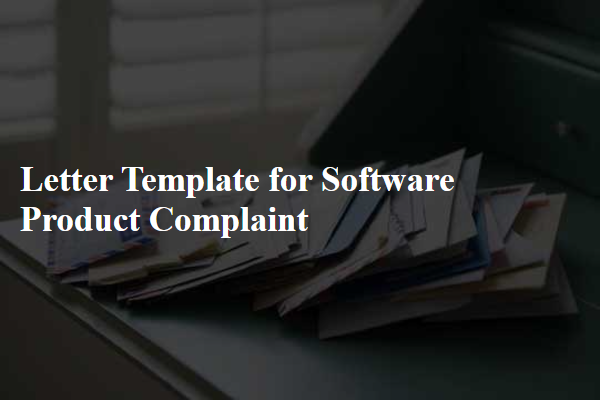
Comments